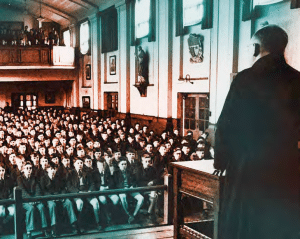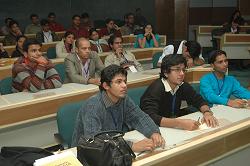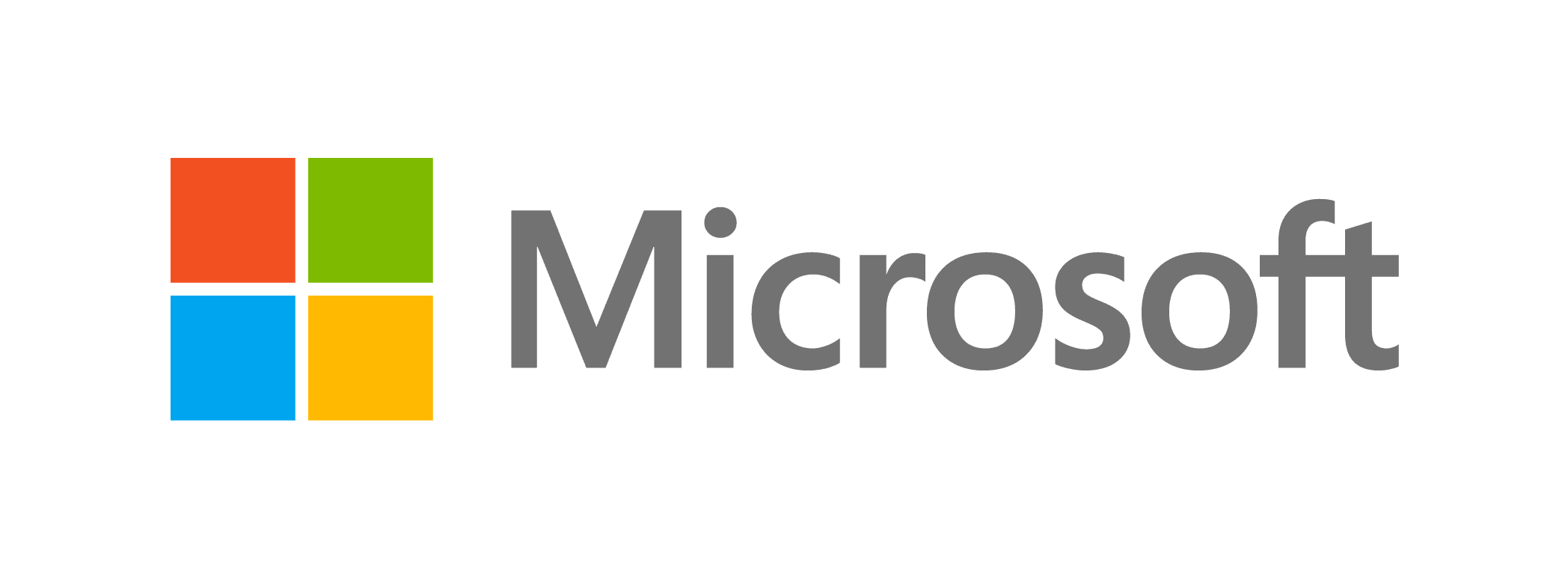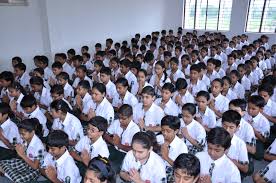 School days are perhaps the best days of our lives. It is indeed that phase in which some of the best values like punctuality, self-discipline, friendship and team spirit are all imbibed by us during those days. In words of Albert Einstein, “Education is what remains after one has forgotten what one has learned in school,” and perhaps these are the values that remains with us for the rest of our lives. And our teachers are the ones who take the centre position of education and the school principals play the role of a captain or master who drives this ship of knowledge.
School days are perhaps the best days of our lives. It is indeed that phase in which some of the best values like punctuality, self-discipline, friendship and team spirit are all imbibed by us during those days. In words of Albert Einstein, “Education is what remains after one has forgotten what one has learned in school,” and perhaps these are the values that remains with us for the rest of our lives. And our teachers are the ones who take the centre position of education and the school principals play the role of a captain or master who drives this ship of knowledge.
Principals act as leaders to ensure that best education is imparted in their school. They are the ones who define pedagogy, ensure a sociable environment for teaching-learning and manage the overall functioning of a school thus often becoming the role models for children. They are the ones who foresee future and impart quality training to students that will be useful for them for the rest of their lives; even in a future that lies at least a decade ahead of them. However, till now insignificant efforts were made towards imparting leadership skills to the principals and teachers of schools. But, over the past few years, teachers’ training has attained one of the top positions of priority list of government and regulators. According to a press release by Ministry of Human Resources Development early this year, a National Mission on Teachers and Training will be launched which will lay down a roadmap to improve the quality of teachers and teaching thereby improving the educational delivery and learning outcomes in higher education institutions and added that a sum of Rs 100 crore has been provided in Annual Plan 2013-14.
Addressing a meet on ‘ICT Leadership in Higher Education’ in Hyderabad in February 2013, the Union Minister for Human Resources Development M M Pallam Raju informed that there is no shortage of funds to upskill teachers. Not only the ministry, even bodies like the Central Board of Secondary Education, state education departments and private companies like the British Council have taken commendable initiatives to ensure quality training of teachers.
Apart from the commendable efforts being taken to improve school leadership, significant efforts are being made to perk up some of the essential elements to ensure a better learning environment in schools. Advancement of school infrastructure and pedagogy, introduction of sports in education, teachers’ training and use of technology in teaching, learning and assessment have gained momentum in most government and private schools.
A school’s infrastructure is perhaps the most important element of a school. It sets the stage for delivering knowledge. The new teaching techniques adopted by teachers to train the young minds are gaining fast recognition among everyone associated with teaching and learning today. Nowadays, with the introduction of ICT tools in the field of education, almost every school is stressing upon creating a unique, innovative style of imparting knowledge, be it with the help of digital classrooms or by providing an all new perspective to the present curriculum. An altogether different way of teaching has made a great impact on the learning capacity of students. Looking at the ever increasing scope for pedagogical innovations,schools that were once reluctant to trythe new-age teaching methods are nolonger shying away from experimentingwith it. The new-age teaching stylesand methodologies adopted by theschools across India have increased theircredibility and prestige manifold.
The introduction of ICT in Educationhas brought a breath of fresh air in theotherwise mundane way of teaching.The digital learning experience enablesstudents to get to the minutest ofdetails, understand the various facetsof the subject matter, and to find logicalsolutions to any problem at hand far moreeasily as the ICT tools leaves no stoneunturned in making the curriculuminteresting for them. An audio visualpresentation has the capacity to engagea student thousand times more than amere simple presentation.
ICT has become a vital componentof the future of education in Indiawith its ability to meet the world classeducation demands of the present.It has further helped the students byintroducing them to the school websites,alumni associations and forums whichhas served as a great platform for themto interact with their teachers and toalso remain updated with the day today happenings of their school. Withincredible intervention of ICT, all thestudent related information like theirattendance, marks, and performance is aclick away now.
Along with quality academiceducation, modern day schools havealso started giving vital importanceto sports education for developmentof a child. It helps students to developskills like cooperation, teamwork andsportsmanship. Sports nurture thephysical health, which allow studentsto function even better in classrooms.It inculcates a sense of discipline anddedication in them which in a way helpsstudents to give their best in all theactivities in school. The schools Emphasisensure physical and mental growthand development of a child throughintroduction of sports in education.
All these innovation at the schoollevel would not have been possible withoutthe open mindedness and ready-toadaptattitude of school principals. Inthis coverage, we would highlight theviewpoints of few principals on howthey brought about a change in theknowledge ecosystem of their schoolsby boosting the infrastructure and pedagogy,encouraging use of technology,introducing sports in education andthrough teachers’ training.
Interviews by R Nandini, Elets News Network (ENN)




























